Methought - November/2024
Monthly wrap-up: too many trips to the movie theatre, a new obsession with Anaïs Nin, Cassavetes yet again, T.S. Eliot on tradition, 1970s brazilian music, and an attempt at understanding Lacan.
Caros Leitores,
Quantas vezes seguidas é possível ir ao cinema sem desenvolver uma aversão à filmes? Em Novembro eu fiz esse teste e, aparentemente, não cheguei ao limite mesmo depois de assistir nove filmes em uma semana por conta do (divertidíssimo) festival Janela Internacional de Cinema do Recife, no histórico Cinema São Luiz.
Também foi um mês de leituras interessantes, mas não em grande quantidade. Tive meu primeiro contato com Anaïs Nin e estou completamente obcecada por ela e preciso ler todos os diários (aceito recomendações para o próximo depois de Henry e June) e pesquisei bastante para escrever dois ensaios. O ano está acabando e eu ainda não li muita coisa que eu queria ler. Paciência, mas é meio frustrante.
H.D. (Hilda Doolittle) é a autora do poema do mês e foi objeto de um desses ensaios (link abaixo), uma escritora extremamente fascinante e que merece mais leitores:
A Clear Phantasmagoria
I used to think that objectivism and mysticism in writing were mutually exclusive, as if there was an unspoken rule in my mind: if I wanted to write about oneiric concepts, the language should reflect that, and if I was dealing with reality, I should adopt a matter-of-fact attitude. Of course, with experience (in writing and readin…
LIVROS &TC
An Attempt at Exhausting a Place in Paris - Georges Perec (1975)
Um exemplo extremo do empirismo literário, uma escrita da atenção minunciosa que retrata o “infraordinário”, nas palavras do autor. Eu amo toda expressão artística que busca desnaturalizar o cotidiano. Perec faz um exercício de se sentar todos os dias, durante três dias, num mesmo banco numa praça em Paris e anotar absolutamente tudo que ele observa, desde quantidade e descrição de pessoas à quantos e quais números ele avistou (placas de carro, linhas de ônibus etc.). Perec era parte do grupo literário OuLiPo (Ouvroir de Littérature Potencielle), fundado em 1960 e que se reune até hoje na Biblioteca Nacional de Paris, que busca implementar jogos matemáticos na linguagem para buscar algo “novo” na literatura (por exemplo, Perec é famoso por ter escrito La Disparition, um livro no qual ele não usa a letra E)
Esse é de fato um livro experimental no qual não há narrativa ou informações — li como pesquisa para ver se eu tinha ideia para um ensaio.
Henry & June - Anaïs Nin (1986)
Publicado postumamente a partir dos diários dela entre 1931 e 1932, Henry e June é um dos melhores livros que li esse ano. Meio brega dizer isso mas não tem como dizer de outra forma: me apaixonei pela escrita de Nin, e daqui pra frente prentendo ler absolutamente tudo que ela já escreveu. Ela relata o romance que teve com Henry Miller (dentre outros homens) e a paixão platônica pela sua esposa June enquanto casada com o banqueiro Hugo Parker Guiler.
Não tenho nada em comum com Nin na prática, nem tenho pretensões de viver uma vida como a dela, mas me identifiquei muito com muitas das ideias, desejos e formas de pensar que ela relata no diário. Ela tem uma vontade de viver imensa, e a intensidade que ela trata o amor e o trabalho (no caso, a literatura) são equivalentes e admiráveis. Poucas pessoas merecem o título de gênio, mas acho que ela sim. Não necessariamente por causa do que ela produziu (afinal nunca li a ficção dela para julgar, “apenas” os diários íntimos) mas por sua aguçada sensibilidade e inteligência; sua capacidade de observação e de expressar as sensações e emoções exuberantescom uma linguagem igualmente forte é nada menos que brilhante. Enfim, achei muito engraçado que ela relata as sessões de terapia com o analista Allendy, e muito do que ele disse à ela acabou servindo para mim — foi catártico e meio preocupante. Tem tantas frases que eu queria compartilhar aqui, mas fiquem com essa que é uma das minhas favoritas:
“Most of my life has been spent in enriching as well as I could the long, long waiting for the great events which fill me now so deeply that I am overwhelmed. Now I understand the terrific restlessness, the tragic sense of failure, the deep discontent. I was waiting. This is the hour of expansion, of true living. All the rest was a preparation.
Thirty years of anguished watchfulness. And now these are the days I lived for. And to be aware of this, so fully aware, that is what is almost humanly unbearable. Human beings cannot bear the knowledge of the future. To me, the knowledge of the present is just as dazzling. To be so acutely rich and to know it!”
ARTIGOS & ENSAIOS
Utopia Brasileira - Alex Hochuli para a Aeon Magazine (2024)
The ‘neo-Pentecostal movement today flourishes in a context of dismantling of labour protections,’ argues Brazil’s leading scholar of precarity, Ruy Braga. This requires less a methodical dedication to work, and more the neoliberal self-management typical of popular entrepreneurship. We are dealing not with the Protestant work ethic, but with an evangelical speculative ethic. Quantification becomes the criteria of validation, be it for believers or churches competing in the religious marketplace. ‘Blessings are consumed, praises sold, preaching purchased,’ as Alencar puts it.
Artigo muito interessante (e preocupante) sobre a ascensão do Protestantismo neo-Pentecostal no Brasil, fazendo um apanhado histórico, político e social por trás desse movimento — quando colocados juntos, todos os sinais parecem óbvios: a trajetória brasileira só poderia apontar para essa direção. Meu incômodo não tem a ver com a religião ou a crença em si (afinal tenho muitos interesses teológicos), mas sim com a ignorância e violência que vem dos discursos de certas igrejas. Religião pode ser um grande indutor de comunidade e reflexão filosófica, mas o evangelismo brasileiro parece ir na direção oposta, o que é lamentável. (leia aqui)
The self is moral - Nina Strohminger para a Aeon Magazine (2014)
The identity detector is designed to pick up on moral features because this is the most important type of information we can have about another person. So we’ve been thinking about the problem precisely backwards. It’s not that identity is centred around morality. It’s that morality necessitates the concept of identity, breathes life into it, provides its raison d’être. If we had no scruples, we’d have precious little need for identities. Humans, with their engorged and highly complex socio-moral systems, have accordingly inflated egos.
A relação cultural do indivíduo com a memória — isto é, como e o que nós consideramos válidos de lembrar e celebrar — é algo que muito me interessa, e quando estava buscando textos sobre, me deparei com este ensaio. Strohminger argumenta que nossa identidade não é definida pelas nossas memórias, mas sim pela nossa moralidade. Falando assim parece óbvio, mas ela exemplifica várias situações em que a “memória moral” que temos de uma pessoa (se era gentil ou cruel por exemplo) influenciou mais nossa percepção do que todos os outros critérios. (leia aqui)
Tradition and the Individual Talent - T.S. Eliot (1919)
What happens is a continual surrender of himself as he is at the moment to something which is more valuable. The progress of an artist is a continual self-sacrifice, a continual extinction of personality.
Esse é um dos ensaios mais famosos de Eliot no qual ele discute a relação entre o artista do presente e seus predecessores que não só o influenciam diretamente, mas que construiram a tradição da qual ele é necessariamente produto ou opositor. É complicado encontrar o equlibrio perfeito entre a originalidade e a tradição, e Eliot reconhece isso. Considerando o momento sociocultural obcecado com progresso no qual esse texto foi escrito, acho que ele traz um conceito muito “refrescante”, principalmente com a ideia “A arte nunca se aprimora, mas o material da arte nunca é exatamente o mesmo”. (leia aqui)
FILMES & SÉRIES
Carrie - Brian de Palma (1976)
Assistir esse filme à meia noite na abertura do Janela no Cinema São Luiz foi inesquecível, principalmente por estar num grande grupo de amigos e porque a sala inteira gritou de susto com a cena final — a reação conjunta é a graça de ver filmes fora de casa. Gostei muito do visual do filme, normalmente filmes de terror tendem a ser muito escuros e/ou acinzentados, por isso adoro quando conseguem combinar cores vivas com histórias macabras, acho que dá um contraste interessante. Simpatizo muito com Carrie e morri de pena dela, contudo, impossível acreditar que Sissy Spacek com aquele cabelo sofreria tanto bullying.
Love Streams - John Cassavetes (1984)
Para quem gosta muito de cinema, acho que é clichê e irritante dizer que Cassavetes é o diretor favorito, mas inevitavelmente ele vem se tornando o meu. É inevitável porque toda vez que vejo um filme dele eu saio da sessão chocada, emocionada, meio besta. É muito difícil descrever com precisão os efeitos da colaboração entre Gena e John, só consigo dizer que não existe nada, absolutamente nada, igual.
Esse é o último filme que ele fez antes de morrer, e de fato é possível sentir a preocupação com mortalidade e com a solidão que surge quando já passou o auge da vida. Gena e John interpretam pessoas muito diferentes mas semelhantes em seu intenso desespero por amor e por sua “loucura” ao lidar com um mundo que não os comporta. A narrativa parece tortuosa às vezes, mas é porque eu acho que estamos vendo a história na perspectiva de duas pessoas desfuncionais e, quando percebi isso, parei de tentar entender com a lógica e esperei para ver o que eles iam me dizer. Eu gosto muito como Cassavetes retrata mulheres que são sempre “demais” para o contexto em que vivem, sempre me emociona por diversos motivos (raramente identificação, o mais próximo foi com Opening Night). A dream sequence que acontece no final é um divisor de opiniões, mas eu achei belíssimo e foi meu momento favorito.
After Hours - Martin Scorsese (1985)
Descobri que esse é o filme favorito do meu pai depois de assistir e conversar com ele, e faz todo sentido: esse filme poderia ter acontecido com meu pai (quem conhece ele vai concordar). Gostei de ver esse lado divertido de Scorsese; o filme parece um deliírio febril ao transformar a angústia do personagem em tentar voltar para casa e não conseguir voltar para casa em humor, como uma inversão cômica da Odisséia.
Megalopolis - Francis Ford Coppola (2024)
Fui assistir de mente aberta mas não adiantou. Vi muita gente criticando vários aspectos da narrativa e roteiro, mas meu maior problema foi estético: Megalopolis filme é visualmente horroroso, tudo me lembrava a loja Carmen Steffens. A história é uma “alegoria” confusa e mal feita sobre como a atual situação dos EUA lembra a queda do Império Romano, cheia de momentos “filosóficos” que são muito genéricos e na verdade não dizem nada. O filme parece que não se decide entre se levar a sério demais ou se é uma piada indulgente de um homem obsoleto. Existe uma preocupação tangível com mortalidade e legado, e eu perdoo a vontade de querer fazer algo artístico para si mesmo, principalmente na velhice, mas é tudo muito mal executado. Aparentemente Coppola passou anos pensando sobre e tentando fazer esse filme e ele ainda assim passa a sensação de algo inacabado.
Baby - Marcelo Caetano (2024)
Uma das boas descobertas no festival do Janela, esse filme é um coming of age que lida com identidade queer de uma forma não deprimente (o que é raro). Baby é um jovem gay recém saído da detenção de menores infratores e, em busca do paradeiro de sua mãe, precisa se virar sozinho em São Paulo passando pelo crime e prostituição. Algumas coisas em Baby me lembraram Beau Travail de Claire Denis. Não é um filme triste, mas emociona pela sinceridade.
My Own Private Idaho - Gus Van Sant (1991)
Eu não esperava gostar tanto desse filme, mas achei sensacional a forma que Van Sant trabalhou uma dupla narrativa, adaptando a história do príncipe Hal em Henry IV de Shakespeare (minha peça favorita junto com Hamlet e Rei Lear) e mesclando-a com a trajetória de um River Phoenix narcoléptico lidando com a solidão e o amor não correspondido. A atuação de Phoenix é muito bonita, uma pena pensar em tudo aquilo que ele poderia ter feito no cinema se não tivesse morrido tão cedo.
Iracema - Jorge Bodanzky, Orlando Senna (1975)
Não é um filme que eu tenha gostado de assistir, mas é interessante para entender certos aspectos da história brasileira. Iracema é uma jovem indígena que vive como prostituta ao redor da construção da rodovia Transamazônica nos anos 70 — um episódio quase folclórico no Brasil devido ao seu absoluto desastre — e através da suas andanças observamos o impacto catastrófico da rodovia na vida da população amazônica. Considerando que Iracema foi feito de forma semidocumental no auge da Ditadura Militar, fiquei o tempo todo me perguntando como permitiram fazer esse filme. Depois descobri que a produção foi uma encomenda para a televisão alemã realizada em 1974, e (previsivelmente) censurada no Brasil até 1981.
Pauline à la Plage - Éric Rohmer (1983)
Uma das coisas que mais gosto na filmografia de Rohmer é a forma que ele retrata a adolescência e as primeiras experiências da juventude como o primeiro amor (e sua desilusão), o despertar da sexualidade, e a crise inevitável sobre o que fazer com a própria vida. Pauline à la Plage é parte da série de Comedies et Proverbs, e como o nome sugere, é uma comédia de erros no estilo de Much Ado About Nothing, mas com um final mais desilusório do que romântico. É verão na Bretanha: imagine os cenários naturais belíssimos, caraterísticos de um filme de Rohmer. Marion tem quase trinta anos, não oficialmente divorciada, e sai de férias para a praia com a sobrinha adolescente Pauline, onde encontra um antigo amante. O filme apresenta uma espécie de quadrado amoroso, bem como algumas discussões eloquentes sobre o amor, a amizade e a verdade. Como sempre, eu adorei cada aspecto do trabalho de Rohmer, especialmente o roteiro.
MÚSICA & PODCASTS
Lacan’s Seminar 7 - Why Theory Podcast
Psicanálise é algo que sempre me interessei (não consigo deixar a coitada da minha irmã que estuda psicologia em paz, sempre peço para ela me mandar textos das aulas dela) e tenho gostado de acompanhar esse podcast que além de psicanálise, fala sobre cinema, filosofia, literatura etc. Eles tem episódios sobre vários seminários de Lacan e, vejam bem, Lacan não é nada fácil mas eles se esforçam ao máximo para serem didáticos e acho que deu certo. Nesse episódio eles discutem algumas inconsistências entre esse seminário e outros de Lacan, explican o conceito de Das Ting, as três ordens da imaginação, imanência, dentre outros tópicos.
Julia Gets Wise with Fran Lebowitz - Wiser Than Me Podcast
Descobri esse podcast da Julia Louis-Dreyfus (Seinfeld) esse mês e adorei. Julia, que já tem mais de 60, convida mulheres mais velhas que ela para conversar sobre a vida — ela tem episódios com Patti Smith, Vera Wang, Julie Andrews, Catherine O’Hara, e claro, a grande diva Fran Lebowitz. Eu poderia ouvir Fran falar sobre absolutamente qualquer coisa o dia inteiro, e nesse episódio elas falam sobre a juventude em Nova York, Toni Morrison, Redes Sociais e as eleições americanas e homens que pintam o cabelo. Como sempre com Fran, eu ri bastante.
Lígia Gonçalves Diniz entra na cabeça masculina - Fio da Meada Podcast
On the Reading of Novels é um ensaio famoso na tradição literária inglesa, e tem um trecho criticando o romance de ficção que eu nunca esqeuci:
“[a maioria dos romances] têm a tendência de enganar a mente, de enfraquecer o coração, de representar a natureza em cores impróprias, de excitar, em vez de suprimir, nos jovens e ardentes, noções românticas de amor, e de conduzir os incautos em meio aos labirintos sinuosos de intriga e aos campos floridos de dissipação. […] As mulheres, em geral, são as mais inclinadas a folheá-los, e por uma desatenção fatal à sua educação, elas são mais propensas a cair vítimas de suas insinuações banais”
Em suma, quando o romance ficcional surgiu ele foi temido e muito criticado por ser um veículo de desvirtuamento. Esse trecho acima é de 1798 mas para minha surpresa muito se assemelha ao que Branca Viana disse nesse podcast sobre os romances das irmãs Brontë “treinarem a gente para romantizar homens violentos” dentre outros equívocos. Será possível que em 2024 ainda tem gente que acredita que a representação da falha moral na ficção é a mesma coisa que uma defesa de tal falha com o intuito de “corromper” o leitor? Sinceramente.
Gostei muito que a professora Lígia disse que as mulheres “não devem não ler” livros escritos por homens, já que hoje existe esse debate meio bizarro sobre se livros “de homem” ou escritos por autores machistas devem ser lidos. Para mim a qualidade literária da obra é a única “defesa” que ela precisa, independente de quem escreveu.
Playlist: passeio de fusca
Talvez pela aproximação do verão (e de uma esperada viagem para a praia) eu escutei (e descobri) muita música brasileira esse mês, principalmente da década de 60 e 70. Fiz essa playlist (o conceito: 1974, num fusca amarelo de janelas abertas, dirigindo na orla de alguma cidade praiana enquanto escuta essa trilha sonora) que provavelmente foi tocada uma vez por dia, pelo menos. Minhas favoritas de Novembro foram Gal Costa e Agela Ro Ro <3
Dear Readers,
How many times can you go to the cinema without developing an aversion to films? In November I was put to the test and, apparently, I didn't reach my limit even after watching nine films in one week during the (very entertaining) Janela Internacional de Cinema do Recife festival at the historic São Luiz Theatre.
It was also a month of interesting reading, but not in great quantity. I had my first contact with Anaïs Nin and I'm completely obsessed with her and need to read all her diaries (I'll take recommendations for the next one after Henry and June) and I did a lot of research to write two essays. The year is coming to an end and I still haven't read a lot of the things I wanted to read. I have to be patient, but it's a bit frustrating.
H.D. (Hilda Doolittle) is the author of the poem of the month and was the subject of one of these essays (link below), an extremely fascinating writer who deserves more readers:
A Clear Phantasmagoria
I used to think that objectivism and mysticism in writing were mutually exclusive, as if there was an unspoken rule in my mind: if I wanted to write about oneiric concepts, the language should reflect that, and if I was dealing with reality, I should adopt a matter-of-fact attitude. Of course, with experience (in writing and readin…
BOOKS &TC
An Attempt at Exhausting a Place in Paris - Georges Perec (1975)
An extreme example of literary empiricism, a writing of meticulous attention that portrays the ‘infraordinary’, in the author's words. I love any artistic expression that seeks to denaturalise the mundane. Perec does an exercise of sitting down every day for three days on the same bench in a square in Paris and writing down absolutely everything he observes, from the amount and description of people to how many and which numbers he spots (licence plates, bus routes, etc.). Perec was part of the literary group OuLiPo (Ouvroir de Littérature Potencielle), founded in 1960 and still meeting today at the National Library in Paris, which seeks to implement mathematical games in language in order to find something ‘new’ in literature (for example, Perec is famous for having written La Disparition, a book in which he doesn't use the letter E).
This is indeed an experimental book without narrative or information — I read it as research to see if I had an idea for an essay.
Henry & June - Anaïs Nin (1986)
Published posthumously from her diaries between 1931 and 1932, Henry and June is one of the best books I've read this year. It's a bit cheesy to say it, but I can't say it any other way: I fell in love with Nin's writing, and from now on I intend to read absolutely everything she's ever written. She recounts her romance with Henry Miller (among other men) and her platonic passion for his wife June while married to banker Hugo Parker Guiler.
I don't have anything in common with Nin in reality, nor do I have any pretensions to live a life like hers, but I identified a lot with many of the ideas, desires and ways of thinking she recounts in her diary. She has an immense will to live, and the intensity with which she treats love and work (in this case, literature) are equivalent and admirable. Few people deserve the title of genius, but I think she does. Not necessarily because of what she produced (after all, I've never read her fiction to judge, ‘only’ her intimate diaries) but because of her acute sensitivity and intelligence; her ability to observe and express exuberant sensations and emotions with equally strong language is nothing short of brilliant. Anyway, I found it very funny that she recounts her therapy sessions with her analyst Allendy, and a lot of what he said to her ended up working for me — it was cathartic and a bit upsetting. There are so many sentences I wanted to share here, but I'll leave you with this one, which is one of my favourites:
“Most of my life has been spent in enriching as well as I could the long, long waiting for the great events which fill me now so deeply that I am overwhelmed. Now I understand the terrific restlessness, the tragic sense of failure, the deep discontent. I was waiting. This is the hour of expansion, of true living. All the rest was a preparation.
Thirty years of anguished watchfulness. And now these are the days I lived for. And to be aware of this, so fully aware, that is what is almost humanly unbearable. Human beings cannot bear the knowledge of the future. To me, the knowledge of the present is just as dazzling. To be so acutely rich and to know it!”
ARTICLES & ESSAYS
Utopia Brasileira - Alex Hochuli for Aeon Magazine (2024)
The ‘neo-Pentecostal movement today flourishes in a context of dismantling of labour protections,’ argues Brazil’s leading scholar of precarity, Ruy Braga. This requires less a methodical dedication to work, and more the neoliberal self-management typical of popular entrepreneurship. We are dealing not with the Protestant work ethic, but with an evangelical speculative ethic. Quantification becomes the criteria of validation, be it for believers or churches competing in the religious marketplace. ‘Blessings are consumed, praises sold, preaching purchased,’ as Alencar puts it.
A very interesting (and disturbing) article on the rise of neo-Pentecostal Protestantism in Brazil, taking a historical, political and social look at the background to this movement - when put together, all the signs seem obvious: Brazil's trajectory could only point in this direction. My annoyance isn't about religion or belief in itself (after all, I have many theological interests), but about the ignorance and violence that comes from the discourses of certain churches. Religion can be a great inducer of community and philosophical reflection, but Brazilian evangelicalism seems to be going in the opposite direction, which is unfortunate. (read here)
The self is moral - Nina Strohminger for Aeon Magazine (2014)
The identity detector is designed to pick up on moral features because this is the most important type of information we can have about another person. So we’ve been thinking about the problem precisely backwards. It’s not that identity is centred around morality. It’s that morality necessitates the concept of identity, breathes life into it, provides its raison d’être. If we had no scruples, we’d have precious little need for identities. Humans, with their engorged and highly complex socio-moral systems, have accordingly inflated egos.
The individual's cultural relationship with memory - that is, how and what we consider valid to remember and celebrate - is something that interests me greatly, and when I was searching for texts about it, I came across this essay. Strohminger argues that our identity is not defined by our memories, but by our morality. It sounds obvious, but she exemplifies several situations in which the ‘moral memory’ we have of a person (whether they were kind or cruel, for example) influenced our perception more than all the other criteria. (read here)
Tradition and the Individual Talent - T.S. Eliot (1919)
What happens is a continual surrender of himself as he is at the moment to something which is more valuable. The progress of an artist is a continual self-sacrifice, a continual extinction of personality.
This is one of Eliot's most famous essays in which he discusses the relationship between the artist of the present and his predecessors who not only directly influence him, but who have built the tradition of which he is necessarily a product or an opposer. It's difficult to find the perfect balance between originality and tradition, and Eliot recognises this. Considering the socio-cultural moment obsessed with progress in which this text was written, I think it brings a very ‘refreshing’ concept, especially with the idea ‘Art never improves, but the material of art is never exactly the same’. (read here)
FILMS & SERIES
Carrie - Brian de Palma (1976)
Watching this film at midnight at the opening of Janela Festival at São Luiz Theatre was unforgettable, especially as I was with a large group of friends and because the whole room screamed with fright at the final scene - the joint reaction is the beauty of watching films away from home. I really liked the visuals of the film — usually horror films tend to be very dark and/or grey, so I love it when they manage to combine bright colours with macabre stories, I think it gives an interesting contrast. I really sympathised with Carrie and felt sorry for her, but I couldn't believe that Sissy Spacek with that gorgeous hair would be bullied so much.
Love Streams - John Cassavetes (1984)
For anyone who is very into cinema, I think it's cliché and annoying to say that Cassavetes is a favourite director, but inevitably he has become mine. It's inevitable because every time I see one of his films, I come out of the screening shocked, moved, a bit dumbfounded. It's very difficult to accurately describe the effects of Gena and John's collaboration, all I can say is that there is nothing, absolutely nothing, like it.
This is the last film he made before he died, and you can really feel his preoccupation with mortality and the loneliness that comes when you're past the prime of your life. Gena and John play very different people who are similar in their intense desperation for love and their ‘madness’ in dealing with a world that doesn't accommodate them. The narrative seems tortuous at times, but that's because I think we're seeing the story from the perspective of two dysfunctional people and, when I realised this, I stopped trying to understand it with logic and waited to see what they were going to tell me. I really like the way Cassavetes portrays women who are always ‘too much’ for the context in which they live, it always moves me for various reasons (seldom relatability, the closest was with Opening Night). The dream sequence at the end is a divider of opinions, but I found it beautiful and it was my favourite moment.
After Hours - Martin Scorsese (1985)
I discovered that this is my Dad's favourite film after watching it and chatting with him, and it makes perfect sense: this film could have happened to my Dad (anyone who knows him will agree). I enjoyed seeing this playful side of Scorsese; the film feels like a fever dream as it twists the character's anguish at trying to get home and not being able to get home into humour, like a comic inversion of The Odyssey.
Megalopolis - Francis Ford Coppola (2024)
I went to see it with an open mind, but it was no use. I saw a lot of people criticising various aspects of the narrative and script, but my biggest problem was aesthetic: Megalopolis is a visually horrendous film, everything reminded me of a Carmen Steffens shop. The story is a confused and poorly made ‘allegory’ about how the current situation in the USA is reminiscent of the fall of the Roman Empire, full of ‘philosophical’ moments that are very generic and don't really say anything. The film can't seem to decide whether to take itself too seriously or be an indulgent joke from an obsolete man. There is a tangible preoccupation with mortality and legacy, and I forgive the desire to want to do something artistic for oneself, especially in old age, but it's all very poorly executed. Apparently, Coppola spent years thinking about and trying to make this film and it still feels unfinished.
Baby - Marcelo Caetano (2024)
One of the good discoveries at the Janela festival, this is a coming-of-age film that deals with queer identity in a way that isn't depressing (which is rare). Baby is a young gay man recently released from juvenile detention who, in search of his mother's whereabouts, has to fend for himself in São Paulo through crime and prostitution. Some things about Baby reminded me of Beau Travail by Claire Denis. It's not a sad film, nonetheless, it’s moving because of its sincerity.
My Own Private Idaho - Gus Van Sant (1991)
I didn't expect to like this film so much, but I thought it was fantastic how Van Sant worked with a double narrative, adapting the story of Prince Hal in Shakespeare's Henry IV (my favourite play along with Hamlet and King Lear) and blending it with the story of a narcoleptic River Phoenix dealing with loneliness and unrequited love. Phoenix's performance is beautiful, and it's a shame to think of all the things he could have done in cinema if he hadn't died so soon.
Iracema - Jorge Bodanzky, Orlando Senna (1975)
I didn’t enjoy watching this film, but it is interesting for understanding certain aspects of Brazilian history. Iracema is a young Indigenous woman who lives as a prostitute around the construction of the Transamazonian highway in the 1970s — an almost folkloric episode in Brazil due to its absolute disaster — and through her journeys, we observe the catastrophic impact of the road on the lives of the Amazonian population. Considering that Iracema was made in semi-documentary form at the height of the Military Dictatorship, I kept wondering how this film was allowed to be made. Then I discovered that the production was commissioned for German television in 1974, and predictably censored in Brazil until 1981.
Pauline à la Plage - Éric Rohmer (1983)
One of the things I like most about Rohmer's filmography is the way he portrays adolescence and the first experiences of youth such as first love (and its disappointment), the sexual awakening, and the inevitable crisis about what to do with one's life. Pauline à la Plage is part of the Comedies et Proverbs series, and as the name suggests, it's a comedy of errors in the style of Much Ado About Nothing, but with an ending that's more disillusioning than romantic. It’s summer in Bretagne: picture the characteristically magical nature scenes in a Rohmerian film. Marion is in her late 20s, unofficially divorced, and goes on holiday to the beach with her teenage niece Pauline where she meets an old lover. The film features a love square of sorts, as well as some eloquent discussions about love, friendship and truth. As always, I adored every aspect of Rohmer’s work, especially the script.
MUSIC & PODCASTS
Lacan’s Seminar 7 - Why Theory Podcast
Psychoanalysis is something I've always been interested in (I can't leave my poor sister who studies psychology alone, I always ask her to send me texts from her classes) and I've enjoyed following this podcast which, as well as psychoanalysis, talks about cinema, philosophy, literature etc. They have episodes on several of Lacan's seminars and, mind you, Lacan isn't easy at all, but they do their best to be didactic and I think it worked. In this episode they discuss some inconsistencies between this seminar and others by Lacan, explain the concept of Das Ting, the three orders of the imagination, immanence, among other topics.
Julia Gets Wise with Fran Lebowitz - Wiser Than Me Podcast
I discovered this podcast by Julia Louis-Dreyfus (Seinfeld) this month and loved it. Julia, who is now over 60, invites women older than her to chat about life - she has episodes with Patti Smith, Vera Wang, Julie Andrews, Catherine O'Hara, and of course, the great diva Fran Lebowitz. I could listen to Fran talk about absolutely anything all day long, and in this episode, they talk about youth in New York, Toni Morrison, Social Media and the American elections and men who colour their hair. As always with Fran, I laughed a lot.
Lígia Gonçalves Diniz entra na cabeça masculina - Fio da Meada Podcast
On the Reading of Novels is a famous essay in the English literary tradition, and it has a passage criticising the Romance novel that I have never forgotten:
‘[most novels] have a tendency to mislead the mind, to weaken the heart, to represent nature in improper colours, to excite rather than suppress in the young and ardent romantic notions of love, and to lead the unwary into the winding labyrinths of intrigue and the flowery fields of dissipation. [...] Women, in general, are the most inclined to leaf through them, and by a fatal inattention to their education, they are more likely to fall victim to their banal insinuations’ (translated from the portuguese)
In short, when the Romance novel first appeared it was feared and much criticised for being a vehicle for corruption. This excerpt is from 1798, but to my surprise it is very similar to what Branca Viana said in this podcast about the Brontë sisters' novels ‘training us to romanticise violent men,’ among other misconceptions. Is it possible that in 2024 there are still people who believe that the representation of moral failure in fiction is the same thing as a defence of such failure in order to ‘corrupt’ the reader? Seriously?
I really liked that Professor Lígia said that women ‘should not not read’ books written by men, since today there is this bizarre debate about whether ‘male’ literature or books written by sexist authors should be read. For me, the literary quality of the work is the only ‘defence’ it needs, regardless of who wrote it.
Playlist: passeio de fusca (beetle ride)
Perhaps due to the approach of summer (and an expected trip to the beach), I listened to (and discovered) a lot of Brazilian music this month, mainly from the 60s and 70s. I made this playlist (the concept: 1974, in a yellow VW Beetle with the windows down, driving along the coast of some beach town while listening to this soundtrack) that was probably played once a day, at least. My favourites from November were Gal Costa and Agela Ro Ro.
see you in the next edition <3




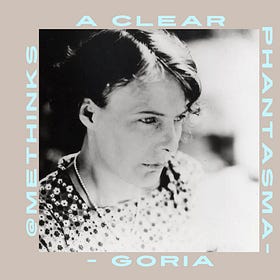
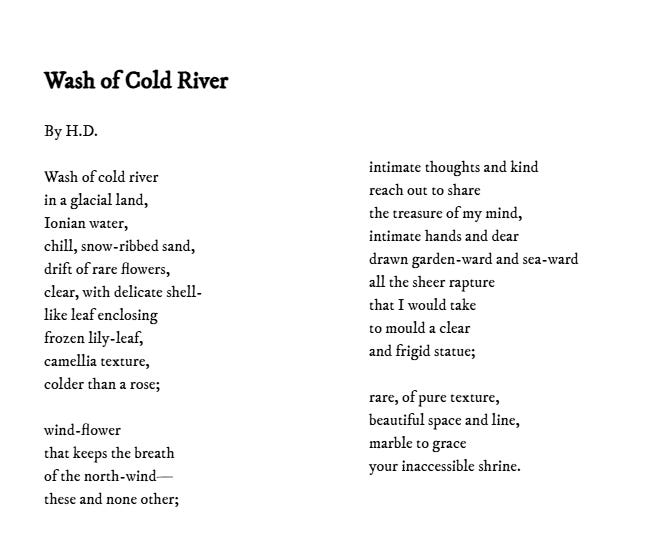
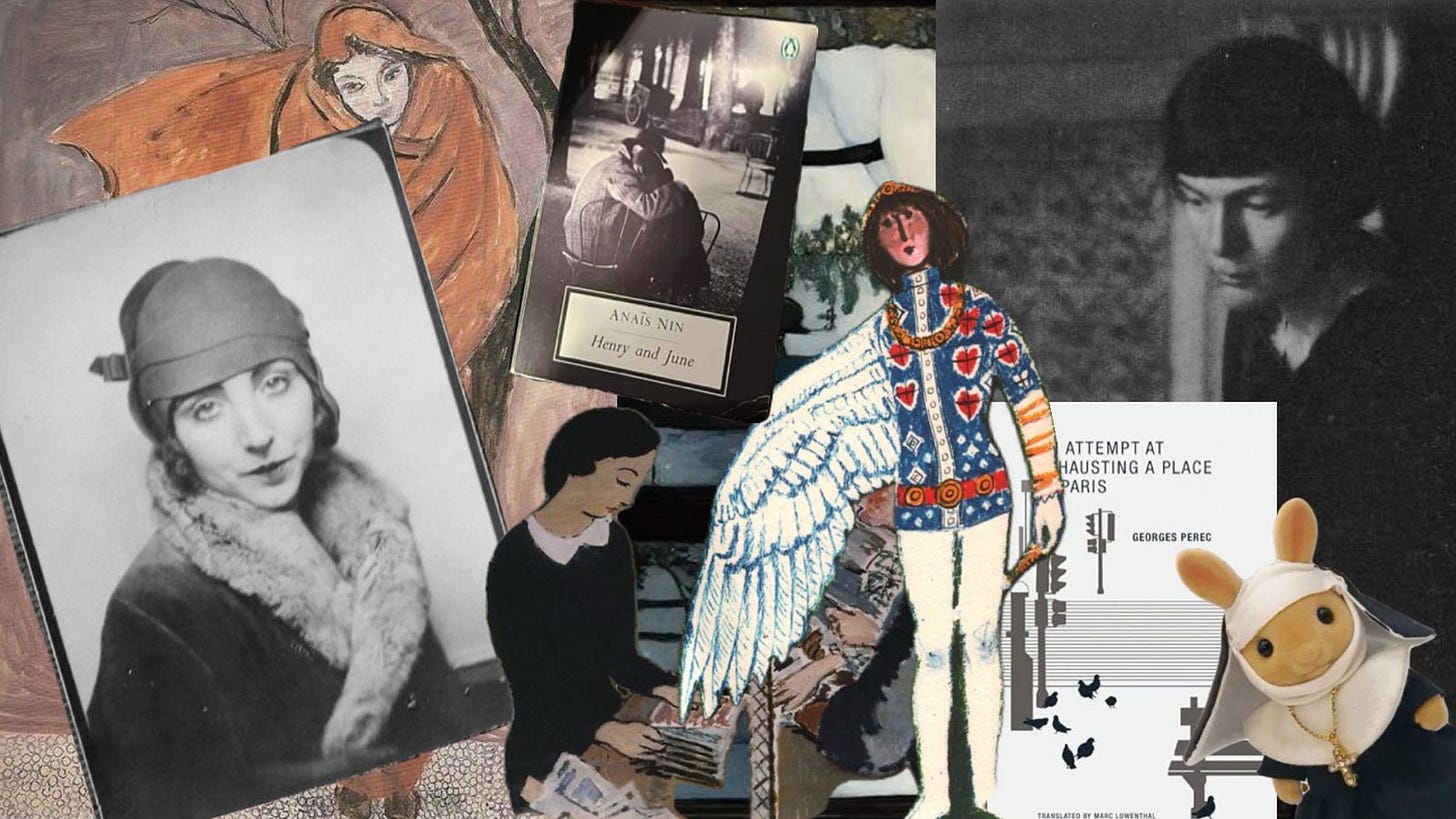
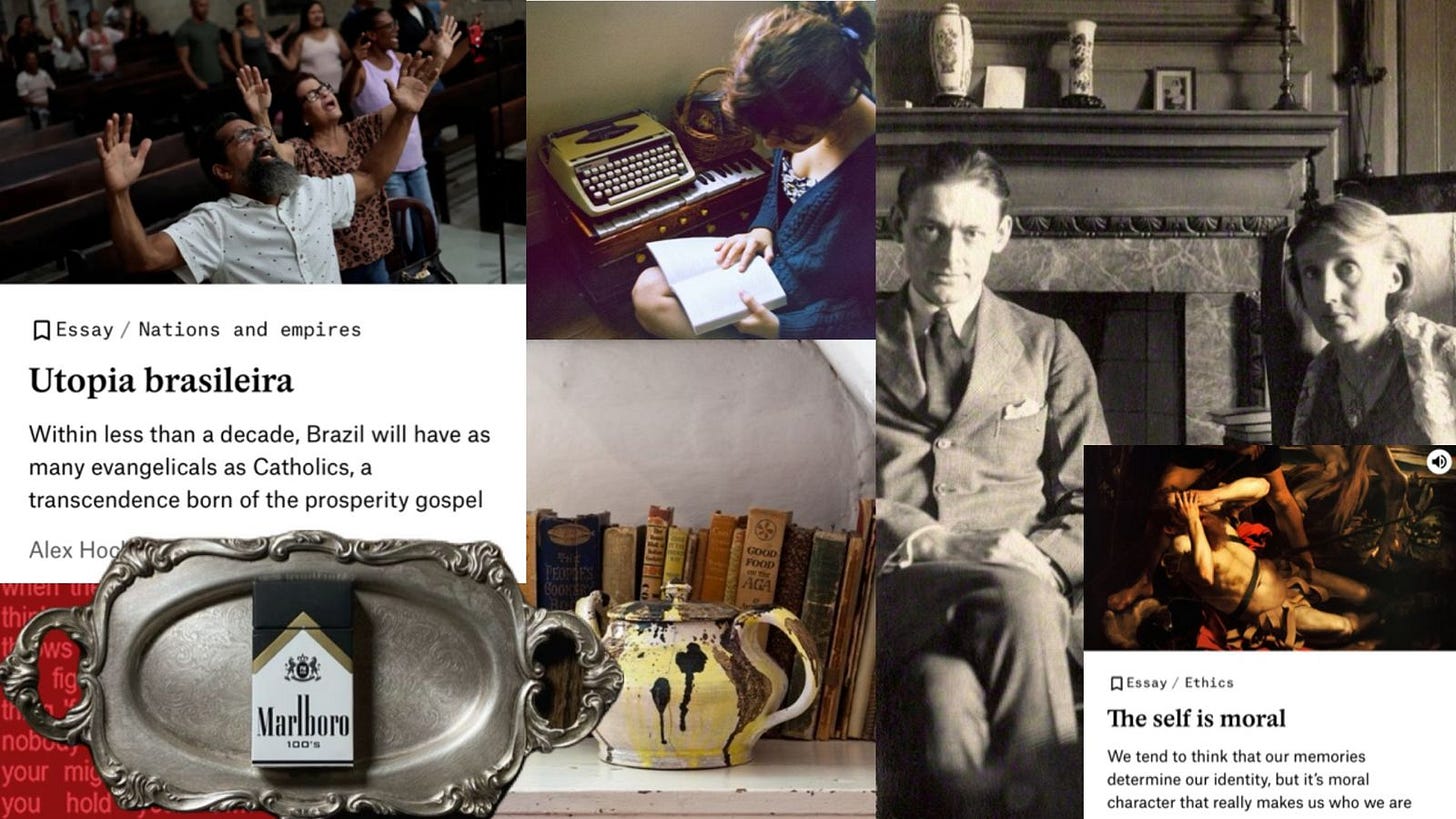
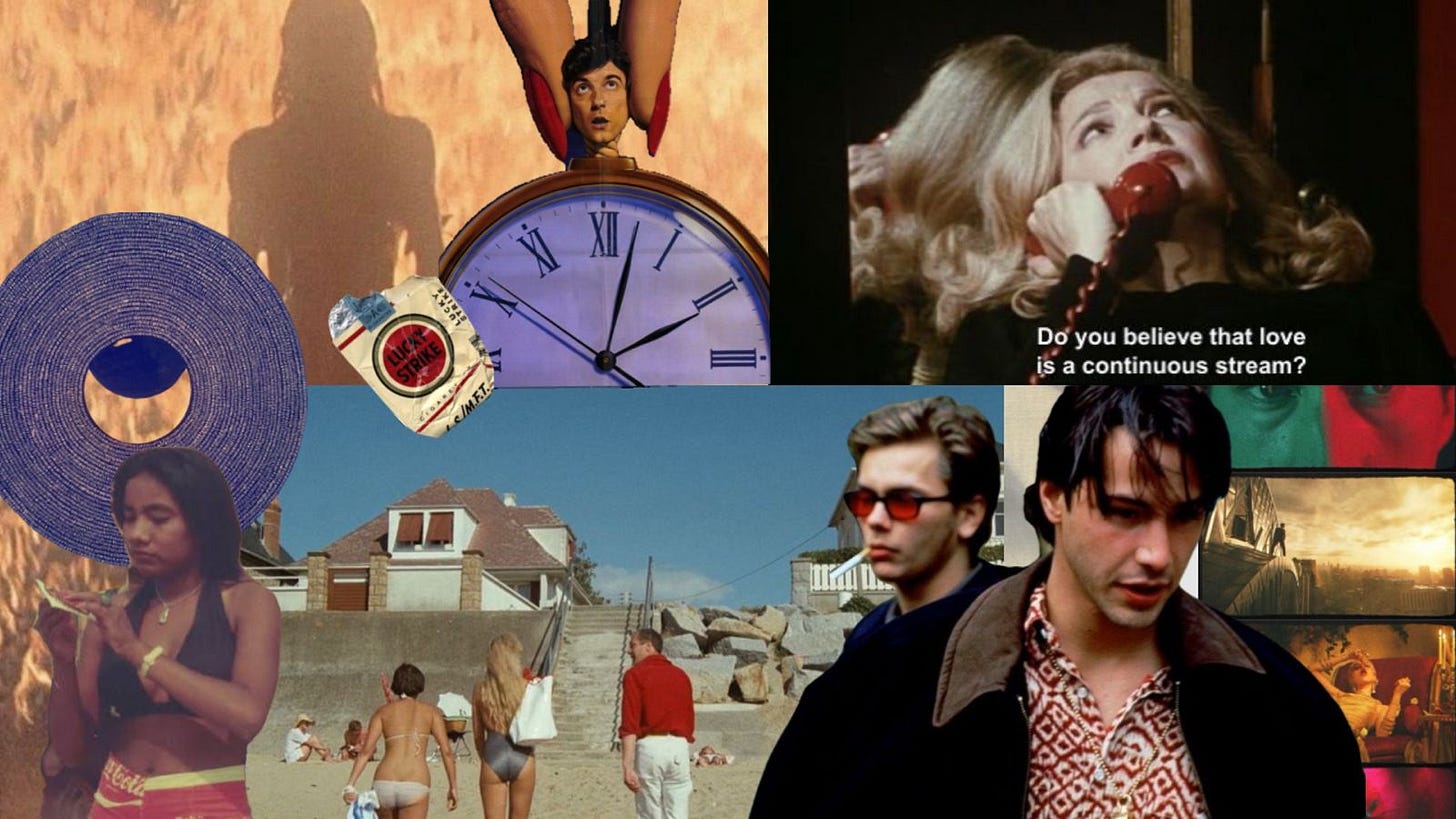
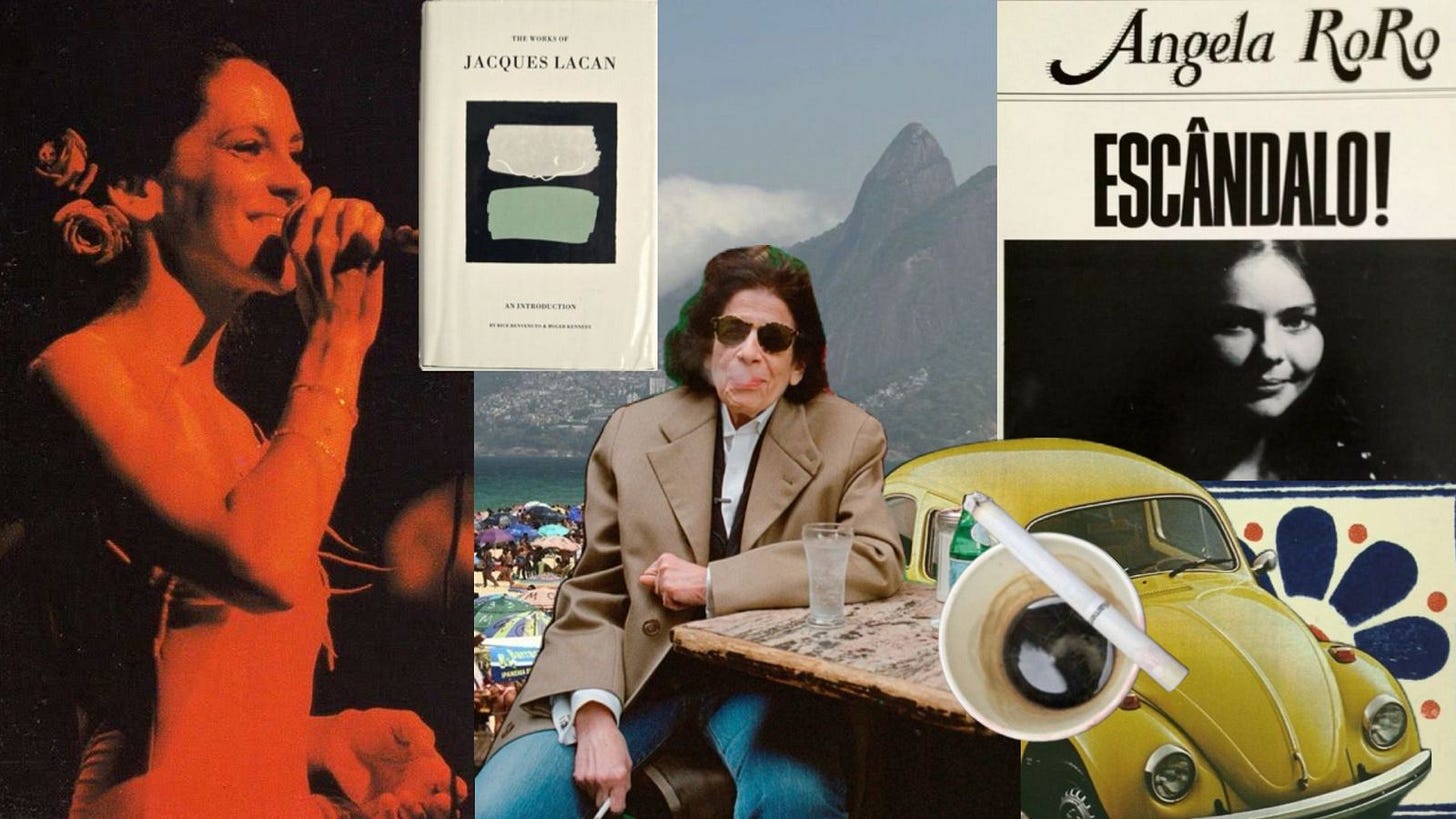
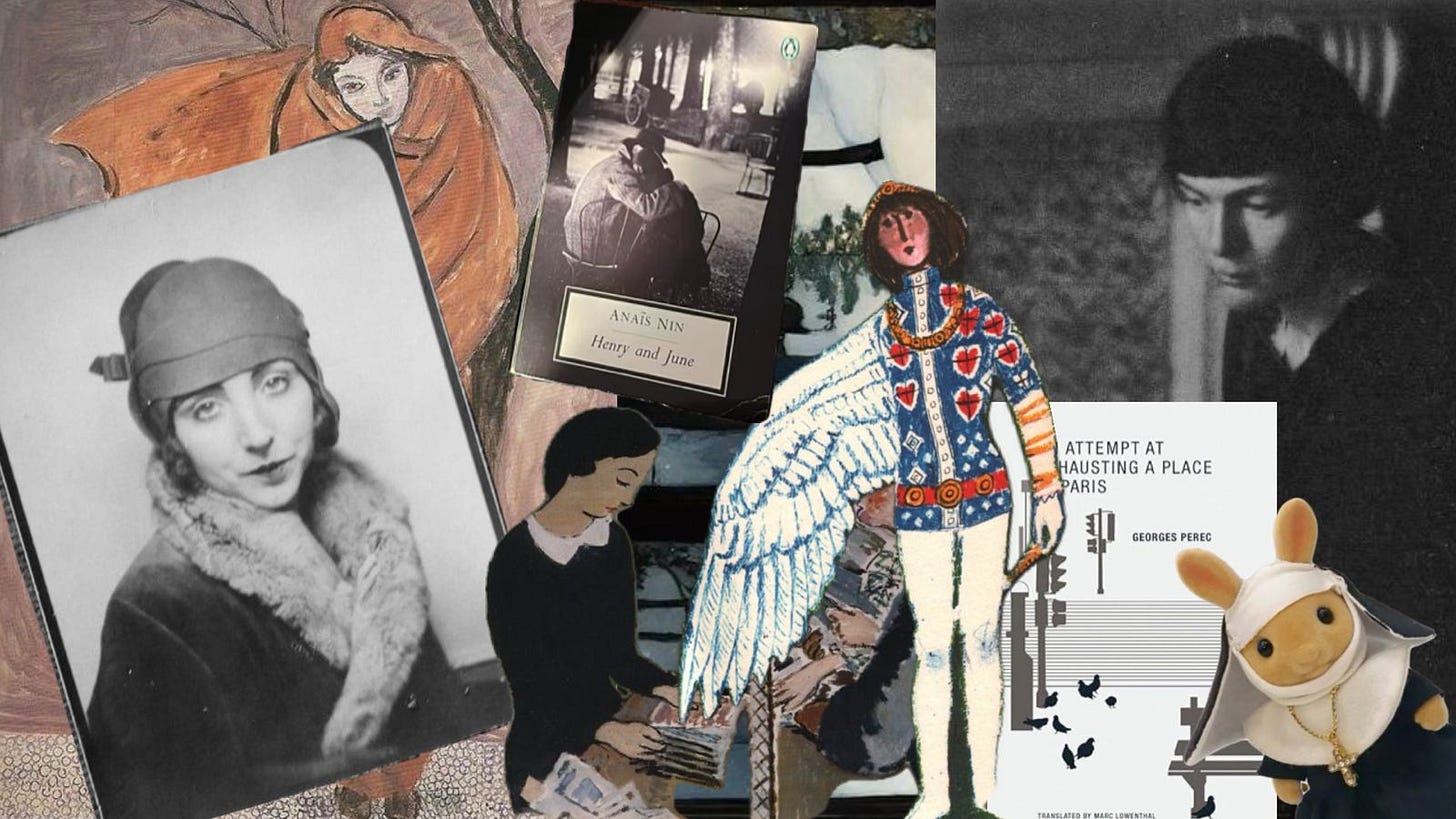
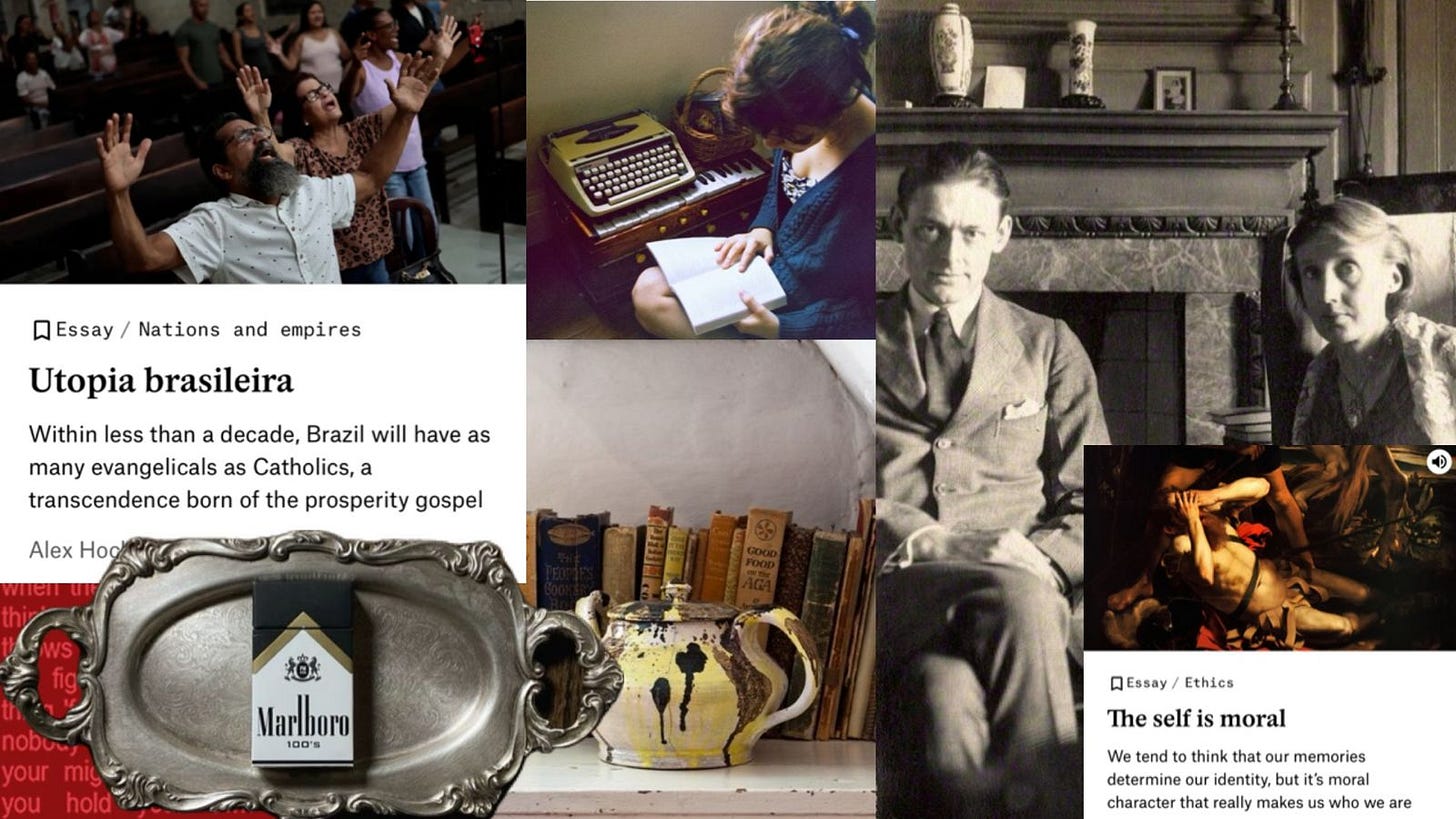
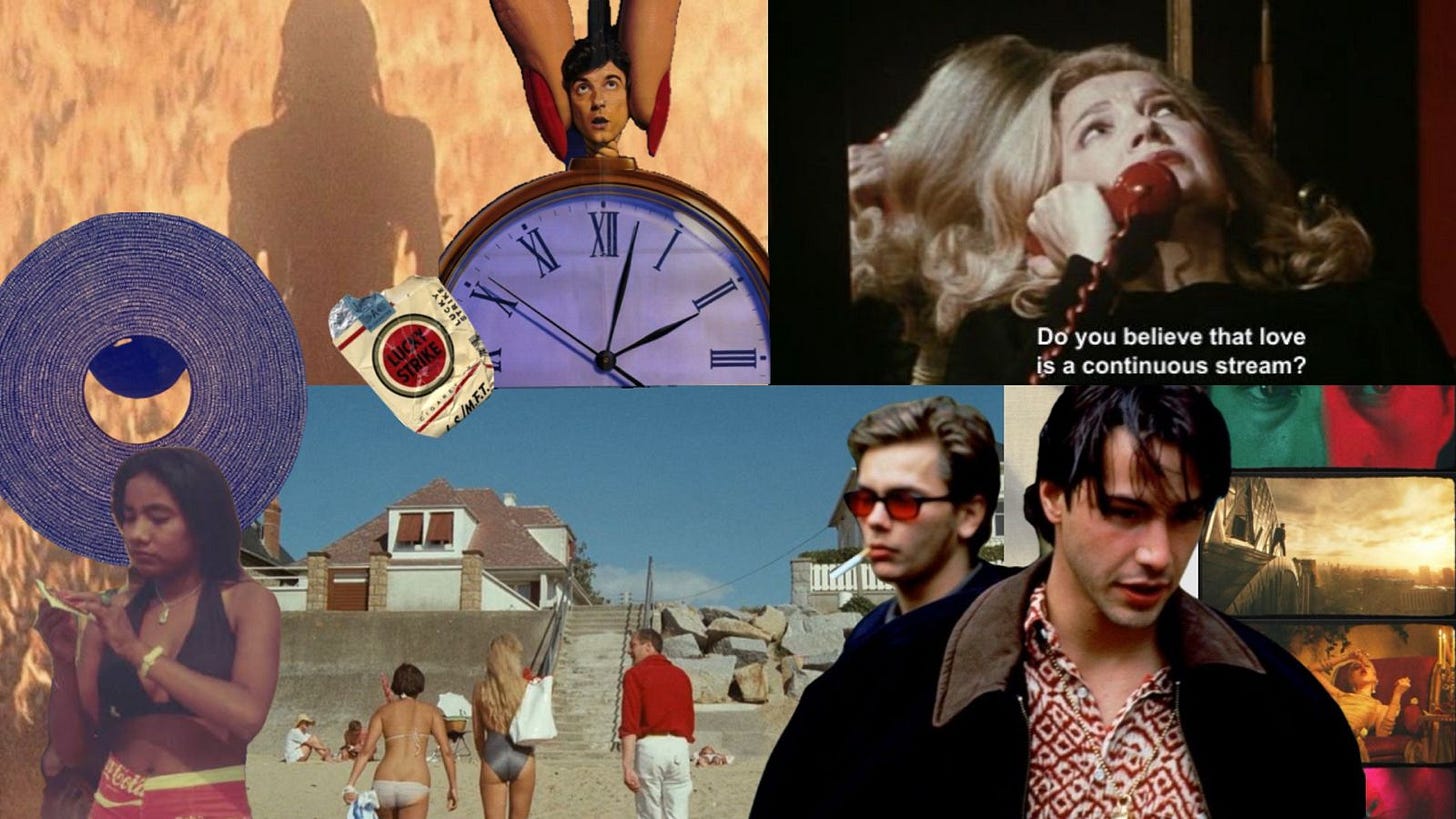
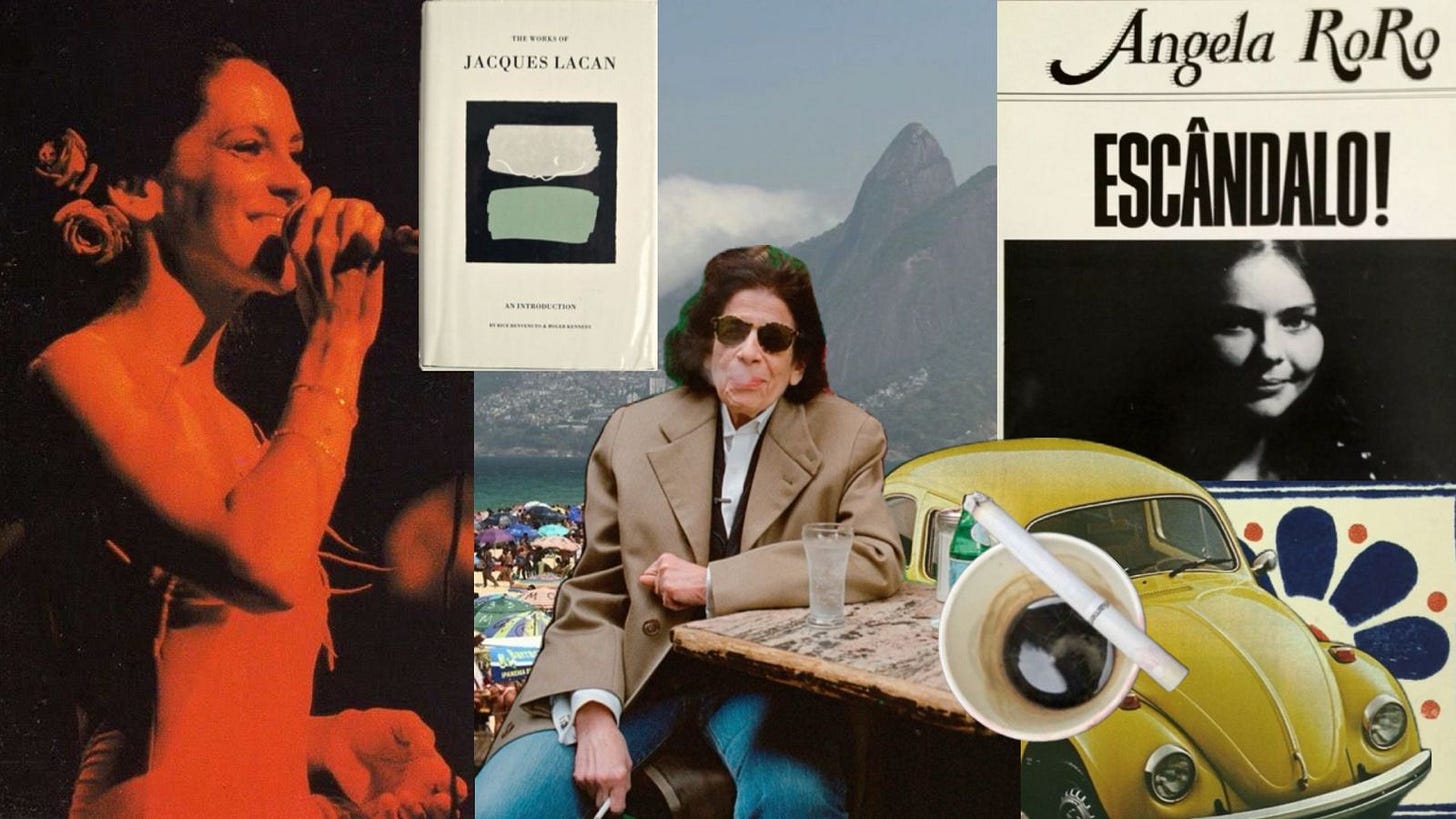
i use apple music, so i had to manually add the playlist to my library in order to listen, but by god, was it worth it! lovely recap and interesting read! <3